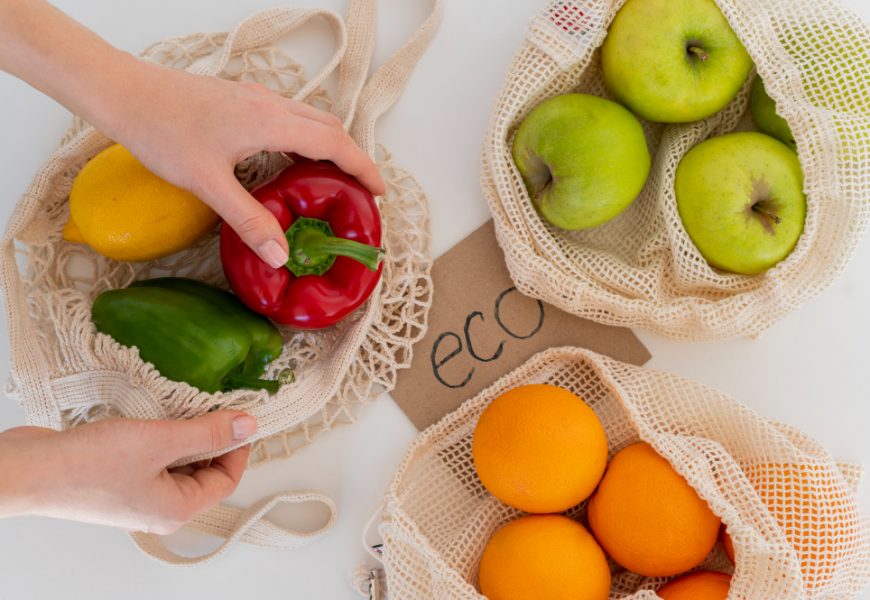The way we grow, distribute, and consume food is undergoing one of the most profound transformations in modern history. For decades, business in the food industry was primarily driven by yield, efficiency, and cost reduction. Today, however, a new reality has emerged: consumers, regulators, and businesses themselves are questioning not only what is produced but also how it is produced. The global food chain is no longer judged solely in economic terms—its environmental, ethical, and social impact has become just as critical.
At the core of this shift lies a fundamental recognition: our food systems are deeply tied to climate change, biodiversity loss, soil degradation, water scarcity, and even human health. Agricultural practices contribute to notable greenhouse gas emissions, while industrialized farming models often strain ecosystems and perpetuate unfair labor practices. Against this backdrop, eco-trends in food are emerging not as luxuries or fringe ideals, but as necessities for business survival and social responsibility.
Sustainable sourcing is now more than a marketing buzzword. Companies are mapping their supply chains to ensure transparency, reducing reliance on monocultures, and prioritizing partnerships with farmers committed to regenerative methods. This translates into restoring soil health through crop rotation, reducing chemical inputs, and reintroducing biodiversity into farmland. By supporting such producers, food companies not only help replenish ecosystems but also build trust with increasingly climate-conscious consumers.
Technological innovations further accelerate this shift. From precision agriculture using AI sensors and drones to vertical farming in urban centers, technology is reducing resource use while maximizing yield in sustainable ways. Blockchain is being applied to food traceability, enabling consumers to track products from farm to shelf with unprecedented accuracy. These tools ensure that sustainability pledges are not merely aspirational—they are verifiable.
Equally important is consumer engagement. Shoppers today are more informed and expect brands to reflect their values. This demand for authenticity compels businesses to embed sustainability into every stage of production, rather than treating it as an afterthought. When companies adopt transparent communication, embrace fair labor standards, and support local community initiatives, they form deeper connections with their audiences. What emerges is a cycle of mutual benefit: consumers feel empowered, while businesses gain loyalty and resilience.
In this context, the food industry is no longer just about feeding populations—it is about nurturing a sustainable, equitable balance between human needs and planetary limits. Businesses that embrace this holistic perspective are discovering that responsibility and profitability are not opposing forces but complementary drivers of long-term success.
For too long, sustainability in the food industry was equated with “green labels” and token eco-certifications designed to reassure consumers at a glance. While certifications and labels still play a valuable role, today’s marketplace demands more depth and authenticity. Climate-conscious buyers no longer respond only to slogans—they want evidence, accountability, and systemic change. This shift is forcing businesses to integrate eco-trends at an operational level, not just in their marketing.
Packaging innovation illustrates this evolution clearly. The rise of compostable films, edible coatings for produce, and reusable container models are more than gestures—they address the mounting global plastic crisis while redefining how food reaches consumers. At the same time, waste minimization strategies, such as turning food surplus into secondary products or energy sources, demonstrate how circular economy principles can generate revenue while cutting environmental burdens.
Plant-based innovations are another defining trend. Alternative proteins, dairy substitutes, and plant-forward menus are no longer niche—they are mainstream. Their appeal is twofold: meeting consumer demand while reducing the carbon and water footprint of animal agriculture. Companies adopting these products are not abandoning tradition—they are expanding opportunities to serve evolving palates and mitigate environmental impact simultaneously.
Still, the journey toward true responsibility is complex. Balancing ecological goals with market competitiveness requires creative adaptation. Businesses must monitor their carbon emissions and energy use, often restructuring their supply chains, investing in renewable power, and improving logistics efficiency. They must also consider social dimensions, such as fair wages for farmers, equitable contracts, and respect for indigenous land rights. These measures are not cheap, but they are increasingly seen as non-negotiable investments in stability and brand trust.
Partnerships play a crucial role in amplifying impact. Collaborations between food companies, startups, NGOs, and governments can accelerate innovation and scale sustainable practices more effectively than isolated efforts. Whether it is developing climate-resilient crops, advancing regenerative certifications, or lobbying for stronger ESG (Environmental, Social, and Governance) standards, cooperation is proving essential.
Perhaps most importantly, the modern eco-trend in food is not about being trendy at all—it is about system transformation. It is about creating resilient food networks that can withstand climate shocks, economic volatility, and shifting consumer expectations. It is about redefining value so that profit is measured alongside positive ecological and social outcomes. It is about ensuring that from seed to shelf, the choices made reflect a broader responsibility to humans, ecosystems, and the generations yet to come.
Final Thoughts
Eco-trends in food are more than a phase; they represent a paradigm shift in the way the world thinks about nourishment, business, and responsibility. Companies that embrace transparency, regenerative methods, and innovation are building not just stronger brands, but stronger futures. Consumers, in turn, reinforce this movement by aligning their purchasing choices with their values.
What emerges is an interconnected system in which food is no longer just a commodity but a powerful medium for environmental stewardship, social equity, and collective well-being. The future of food is not defined by profit alone—it is shaped by a commitment to sustainability, fairness, and resilience.
And in this future, every meal shared becomes part of a much larger story: one where responsible consumption and responsible business stand side by side, cultivating a healthier planet for all.












